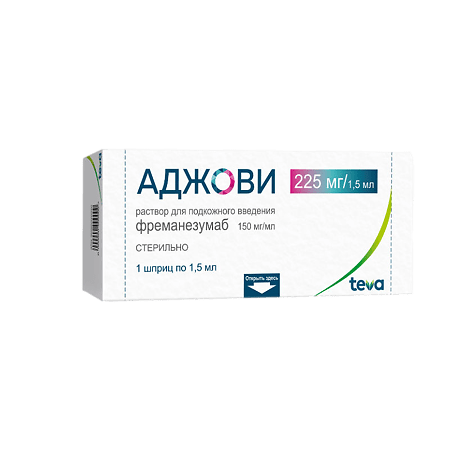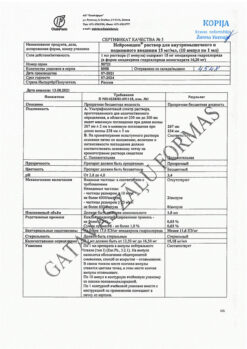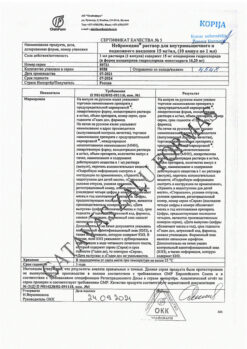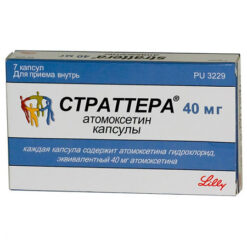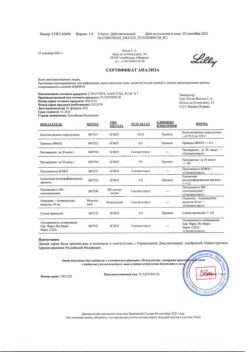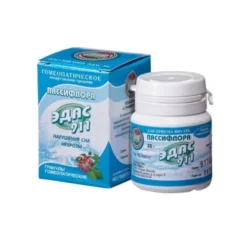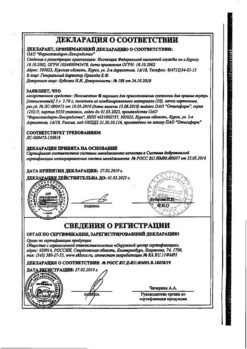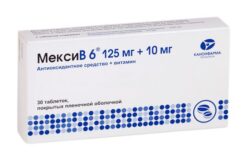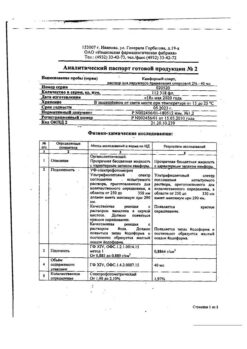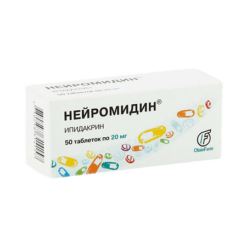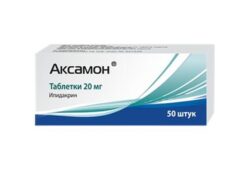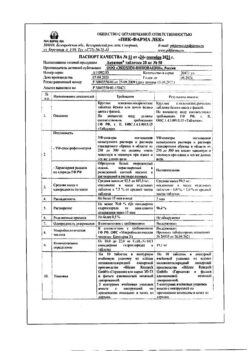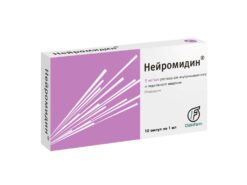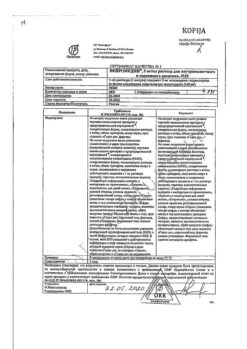No products in the cart.
Ajovi, 150 mg/ml 1.5 ml
€1.00
Out of stock
(E-mail when Stock is available)
Description
Pharmacotherapeutic group:antimigraine medicine
ATX code: N02CD03
Indications
Indications
Preventive treatment of migraine in adults who have 4 or more migraine days per month.
Pharmacological effect
Pharmacological effect
Pharmacotherapeutic group: antimigraine drug
ATX code: N02CD03
Special instructions
Special instructions
Hypersensitivity
In clinical studies, hypersensitivity reactions to fremanezumab were observed in less than 1% of patients. If a hypersensitivity reaction develops, it is necessary to consider discontinuing the drug Ajovi and prescribe appropriate treatment.
Patients with cardiovascular (CV) diseases
Patients with significant cardiovascular disease, vascular ischemia, or thrombotic events such as acute cerebrovascular accident, ministroke, deep vein thrombosis, or pulmonary embolism were excluded from clinical studies. The safety and effectiveness of Ajovi in such patients have not been established.
Excipients
One dose (1.5 ml) of Ajovi contains less than 1 mmol of sodium (23 mg), that is, the drug is practically free of sodium.
Storage
The drug Ajovi should be stored in the refrigerator at a temperature of 2 ° C to 8 ° C in the original packaging to protect from exposure to light. If necessary, the drug Adjovi can be stored at room temperature from 20 ° C to 25 ° C in the original packaging for no more than 24 hours. Once removed from the refrigerator, Ajovi must be used within 24 hours or discarded.
DO NOT freeze or shake the drug. Additionally, DO NOT use the product if it has been exposed to high temperatures or direct sunlight.
Impact on the ability to drive vehicles and machinery
The drug Ajovi does not affect the ability to drive vehicles or operate machinery. In case of side effects, caution should be exercised.
Active ingredient
Active ingredient
Fremanezumab
Composition
Composition
1 ml contains:
active ingredient:
fremanezumab 150 mg;
excipients:
L-histidine 0.543 mg,
L-histidine hydrochloride monohydrate 2.620 mg,
sucrose 66 mg,
disodium edetate dihydrate 0.136 mg,
polysorbate 80 0.02% w/o,
water for injections up to 1 ml.
Pregnancy
Pregnancy
Pregnancy
It is recommended to avoid using the drug during pregnancy.
Data on the use of Ajovi in pregnant women are limited.
The results of preclinical tests of pharmacological safety, repeated dose toxicity, as well as toxicity to reproductive function and offspring indicate the absence of direct or indirect adverse effects of the drug on human reproductive function.
Because fremanezumab is a monoclonal antibody, no genotoxicity or carcinogenicity studies have been conducted.
Breastfeeding period
There is no information about the penetration of fremanezumab into breast milk, the effect on the breast-fed baby or milk production. In the first days after birth, human IgG antibodies are secreted in breast milk, but soon the concentration of the latter in it decreases. During this short period of time, a risk to the child cannot be ruled out. Subsequently, the use of Ajovi during breastfeeding should only be considered if clinically necessary.
Fertility
There are no data on the effects of fremanezumab on fertility in humans. Based on the results of preclinical studies, therapy with Ajovi does not suggest a negative effect on fertility.
Contraindications
Contraindications
Hypersensitivity to the active substance, as well as to the excipients included in the drug.
Age up to 18 years.
With caution:
Patients with serious cardiovascular diseases.
Side Effects
Side Effects
The safety of Ajovi was assessed in more than 2,500 patients with migraine who received at least one dose of the drug. Thus, the exposure amounted to more than 1900 patient-years. In more than 1400 patients, the duration of therapy was at least 12 months.
Commonly reported adverse reactions (HPs) included local injection site reactions [pain (24%), induration (17%), erythema (16%), and itching (2%)].
HPs described in clinical studies are listed according to the Medical Dictionary of Regulatory Activities (MedDRA) system organ class. HP are systematized in accordance with the World Health Organization (WHO) Classification: very common (≥1/10); often (≥1/100, <1/10); uncommon (≥1/1000, <1/100); rare (≥1/10000, <1/1000); very rare (< 1/10000); frequency unknown (cannot be determined from available data).
System organ class MedDRA
Frequency
Adverse reaction
General disorders and
disturbances at the injection site
very often
pain, induration, erythema
often
itching
infrequently
rash
Description of selected adverse reactions
Injection site reactions
The most commonly observed local reactions at the injection site included pain, induration, and erythema. All local reactions at the injection site were transient and mostly mild or moderate in severity. Pain, induration, and erythema typically occurred immediately after injection, whereas pruritus and rash appeared after an average of 24 and 48 hours, respectively. All injection site reactions usually resolved within hours to days. In general, these adverse reactions did not require discontinuation of the drug.
Immunogenicity
In placebo-controlled studies, low-titer antibodies to the drug were observed in 0.4% (6 of 1701) of patients after initiation of fremanezumab treatment. Neutralizing antibodies were detected in 1 of these 6 patients. After 12 months of treatment, antibodies to the drug were detected in 2.3% (43 of 1888) of patients, neutralizing antibodies were detected in 0.95% of patients. The presence of such antibodies did not affect the safety and effectiveness of the drug.
Interaction
Interaction
No formal clinical drug interaction studies have been conducted with fremanezumab. Based on the properties of fremanezumab, pharmacological drug interactions are unlikely. In addition, concomitant use of drugs taken for the treatment of migraine attacks (especially analgesics, ergot alkaloids and triptans) and drugs taken for the prophylactic treatment of migraine did not affect the pharmacokinetics of fremanezumab.
Overdose
Overdose
The maximum dose of the drug during clinical trials was 2000 mg when administered intravenously. The development of adverse reactions and dose-limiting toxicity was not observed. In case of overdose, the patient is recommended to be under medical supervision in order to detect possible adverse reactions. If necessary, carry out symptomatic treatment.
Storage conditions
Storage conditions
Store at a temperature of 2 to 8 °C in the original packaging.
Do not freeze.
Keep out of the reach of children!
Shelf life
Shelf life
2 years.
Do not use after expiration date.
Manufacturer
Manufacturer
Vetter Pharma-Fertigung GmbH and Co. KG, Germany
Additional information
| Shelf life | 2 years. Do not use after the expiration date. |
|---|---|
| Conditions of storage | Store at 2 to 8°C in the original container. Do not freeze. Store out of the reach of children! |
| Manufacturer | Vetter Pharma-Fertigung GmbH & Co. |
| Medication form | solution |
| Brand | #Н/Д |
Related products
Buy Ajovi, 150 mg/ml 1.5 ml with delivery to USA, UK, Europe and over 120 other countries.

